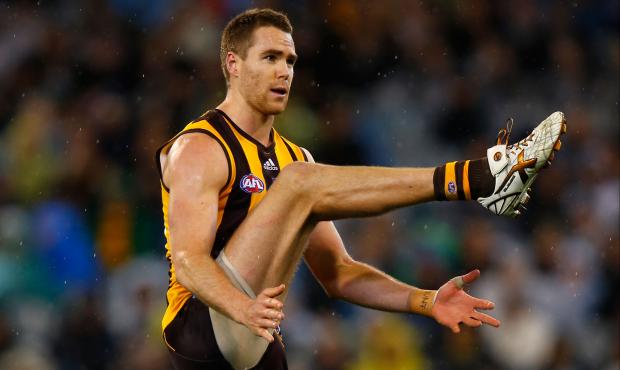Lance Franklin, Adam Simpson, Brent Guerra, Max Bailey and Michael Osborne are all moving on from the club under completely different circumstances but with one similarity behind them: experience in the Hawthorn system.
It will stand them in good stead.
Their experience might provide other clubs with part of the answer as to how Hawthorn has become a great club under Alastair Clarkson.
One line from Clarkson's speech on Saturday night at the club best and fairest said it all: "[It's] not just about winning silverware but developing our people."
He knows the best workplaces train their staff for opportunity - within their current workplace and for the future.
Not only does he know it (most clubs espouse it so much it's a cliché), his club, Hawthorn appears to practise it.
The Hawks are among the few clubs that have player wellbeing on the board's agenda. Every month, the board discusses how each player on the list is progressing off field, what support they might need and who can give it to them.
Someone such as Sam Mitchell might be discussed for 10 seconds. You can imagine more time being applied to some others.
No one knows whether such an approach is related to what is happening on field but given the quality of players the Hawks have attracted and retained in recent seasons, it's hard to argue it is not.
And 60 wins from 75 games in the past three seasons is a good indicator too.
An important part of that success is Hawthorn's football sub-committee – which consisted at the end of the season of Clarkson, Jason Dunstall, Chris Fagan, Andrew Russell, Jason Burt and Graham Wright.
The group looks at a player from every angle to get the best out of them and if the coach has a certain view, he has to convince the majority.
The process increases the likelihood of good decisions being made and, once the decision has been made, everyone begins working for the one outcome.
It has not got every decision right, but it has made more good ones than bad ones. And the process leads to a unified approach when it comes to implementing the decision.
That's more important than it might sound.
Look at the players Hawthorn has brought into the system to succeed: Brian Lake, Shaun Burgoyne, David Hale, Josh Gibson, Jack Gunston and Jonathan Simpkin.
None were guarantees when they arrived, except for the fact they had gone to Hawthorn.
Whatever one thinks of the merits of the Franklin deal to move to the Sydney Swans, a desperate desire to get out of Hawthorn was not his motivation.
One suspects if Buddy could have relocated the brown and gold up north he might well have done so.
Money and lifestyle are important to Buddy but he – and his manager – also know the importance of being part of a good club.
That's one reason, I guess, he chose the Swans ahead of Greater Western Sydney.
He's smart enough to realise his best chance to flourish was to be part of a great club, not part of building a great club. It doesn't seem to be part of his ambition (those who manage Richmond's Dustin Martin would be smart to realise the same factors in relation to their client).

What sets the Hawks apart from many clubs is that it doesn't only develop players but coaches too.
Simpson became the third assistant coach from the Hawks in the past four years to become a senior coach, following Leon Cameron (at GWS) and Damien Hardwick (at Richmond).
Luke Beveridge sits in the stable too, now building a resume that will see him a senior coaching candidate at some stage.
Brett Ratten will be a better coach for being at Hawthorn. Cameron Bruce arrived as a player and remains as a coach, having got opportunity at a club that respects it.
Mark Evans went from football manager to head of the AFL football operations.
Bailey, Guerra, Osborne go with good will and knowing they are welcome always.
Although Clarkson might be emotional – and they say hot-headed at times – his core values are rock solid.
There is a country-raised boy within who has seen more than once first-hand the challenges life can provide and learned to deal with them like a man.
That's what he wants to see his players and staff able to do, too, and to know that their time at Hawthorn put them on a path where opportunities were there to be taken.
That is what good clubs – at any level – do well.
And Hawthorn under Clarkson has become a good club – on and off the field.
It has every reason to be proud of its performance.


